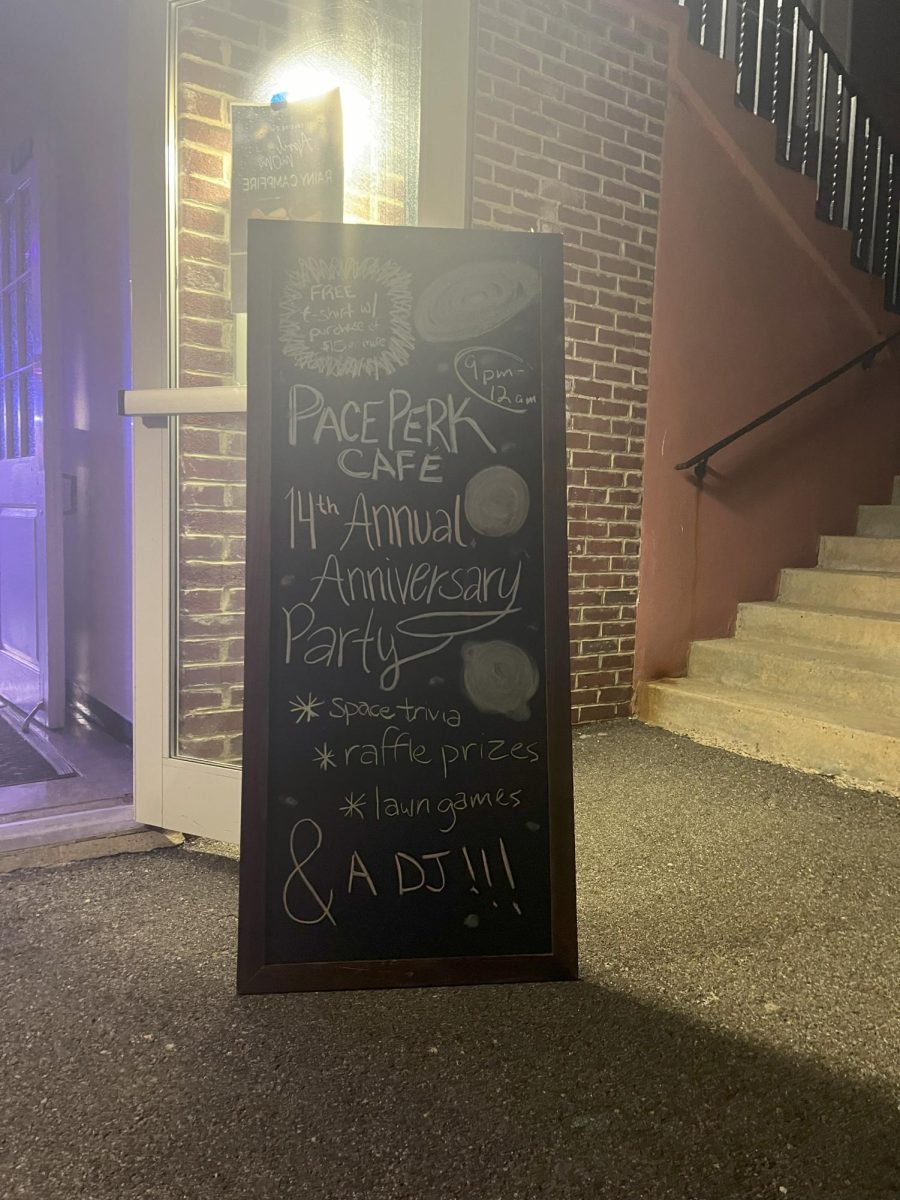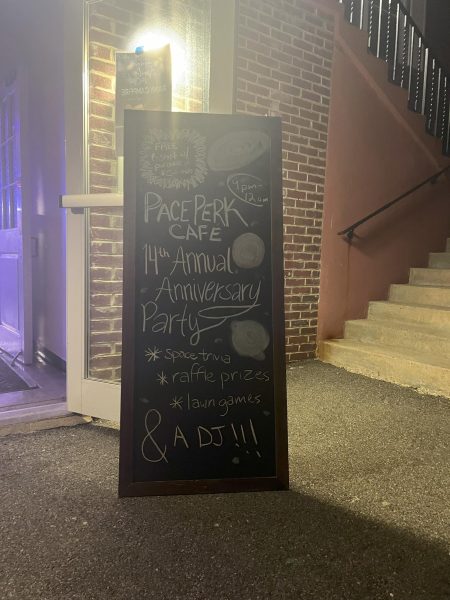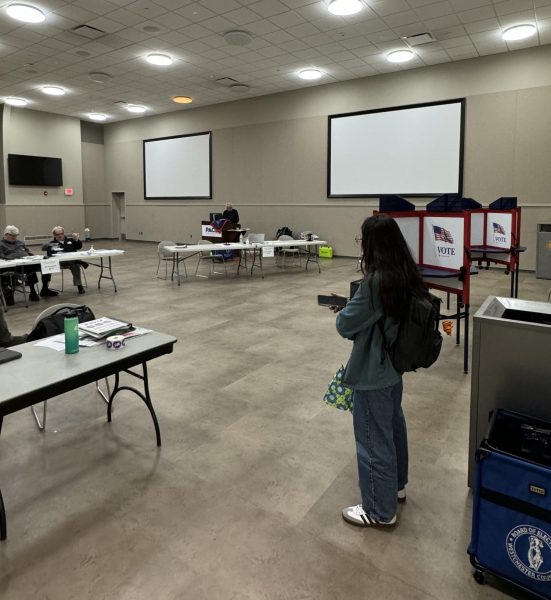Students Research Connection Between Chartwell’s and CAFO
April 17, 2014
Members of the Food Justice Team handed out a survey to Pace students regarding the nutritional value of cafeteria foods at the University.
88 percent of participants said that they want healthier options at Pace and 77 percent expressed concern for the treatment of the animals that would be fed to them.
Alexandra Catalano, Alyssa Boas-Vilas, and Maricielo Gomez are three freshmen who are working on a research project on possible connections between Chartwells and Concentrated Animal Feeding Operations (CAFO) or what they rename, Confined Animals Fighting Oppression. The paper is for the Environmental Policy Clinic, a program within Pace Academy for Applied Environmental Studies. The clinic fosters civic engagement and professional development by enabling students to work on policy issues around water, animal rights, climate and community sustainability.
“[CAFO] congregates animals, feed, manure and urine, dead animals, and production operations on a small land area. Feed is brought to the animals rather than the animals grazing or otherwise seeking feed in pastures, fields, or on rangeland,” The environmental Protection Agency said.
According to the girls’ research thus far, there is no direct connection between CAFO and Chartwells, a food supplier for grades K-12 and higher education institutions. However, during a meeting, the head of Chartwells, Andrew Castellon, informed the team that Tyson is the university’s chicken supplier.
“Tyson tends to work with CAFO companies,” the group said. “We hope to inform Chartwells about this and we trust that they will listen to us and help us find better suppliers.”
Catalano, Boas-Vilas and Gomez have also had discussions with the head of Chartwells on the New York City campus, Tyrone Ellen. During both meetings, the team asked questions about the kind of food served on campus, explained their passion for healthy food and discussed how they envisioned the future of food at Pace.
“We want to make it clear we are not attacking Chartwells, we are working with them,” said Boas on behalf of her team, that continuously emphasizes how their vision is linked with Chartwells.
Bard College in Annandale-on-Hudson, New York hires Chartwells as well. Recently, the three girls Skype called two Bard students and the Dean of Social Action, Paul Marienthal to discuss Bard’s healthy and sustainable food practices. One initiative, which the Food Justice Team described as having “revolutionized food policy on the Bard Campus”, is the1.25 acre student-run sustainable organic farm, of which Marienthal is also the Farm Director.
“This works to develop local food culture in the fields and on the plate is not only a lesson for us as consumers, a call for responsibility, but is also a direct way to improve the institutional buying habits of large-scale food companies like the one at Bard,” says the farm’s website.
The Food Justice Team is collaborating with the Center for Community Action and Research (CCAR) to look into sustainable food strategies for Pace, and Goomez hopes to emphasize that this is a student driven initiative.
Students from colleges and universities around the country have taken action to address and change the quality and sources of food served in their cafeterias and dining halls. The Real Food Challenge is an example, where thousands of students have started campaigns to get “real food” on their campuses by the year 2020.
The Real Food Challenge, which provides a campaign toolbox for students, resources for food professionals and faculty, strategy retreats and campus visits and workshops define real food as “food which truly nourishes producers, consumers, communities and the earth. It is a food system–from seed to plate–that fundamentally respects human dignity and health, animal welfare, social justice and environmental sustainability”.
The Food Justice Team enourages students to be more informed about what they are eating, which, as they pointed out, is difficult since most of the food on campus is labeled with price and not nutritional facts.
“We don’t think our dining service provider should be changed,” said Boas-Vilas, who hopes to carry on the project even after this semester. “There should be certain revisions”.
Chartwells was unavailable for comment.
Learn more about the Food Justice Team and their work by visiting http://epolicypace.blogs.pace.edu/.













